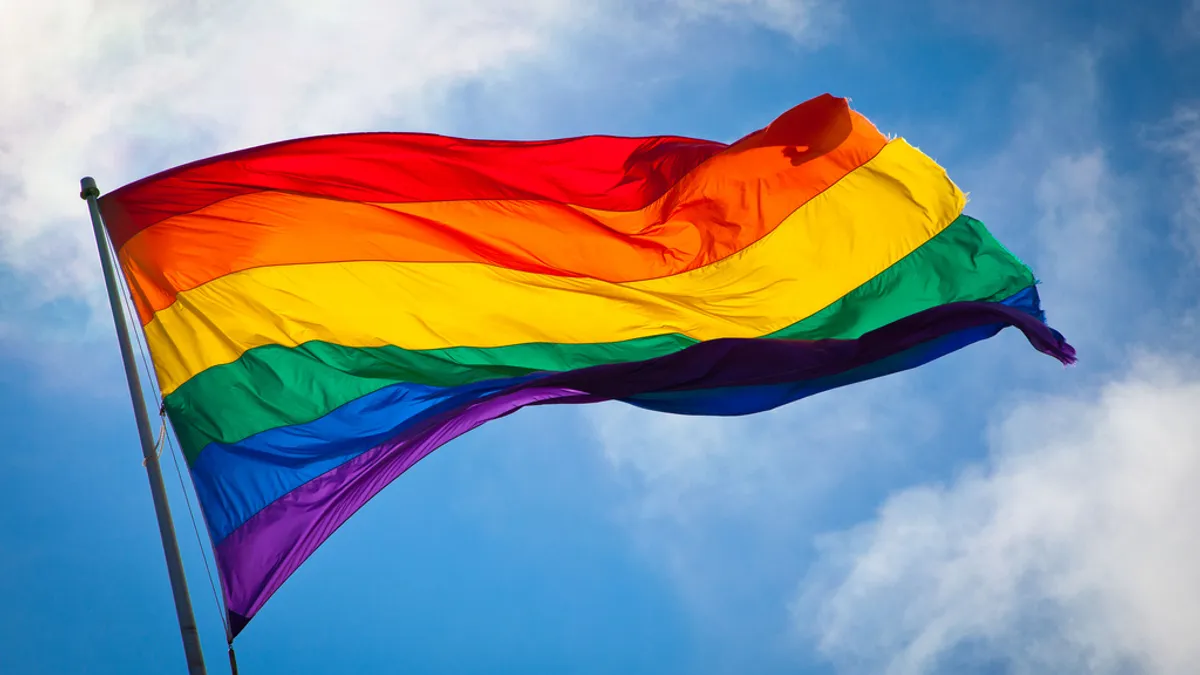Dive Brief:
- Eighty percent of LGBTQ employees said they're ready to disclose their orientation to their workplace, but only half actually have, according to a report emailed to HR Dive from the Boston Consulting Group (BCG). BCG's fourth-edition global survey on the perceptions of LGBTQ employees also found that a third of these workers said they believe that being out at work would hurt their careers.
- Study results also found that social and political mores continue to prohibit LGBTQ workers from being open about their sexuality within the workplace. The study showed that 46% of respondents said they would outright lie about or avoid discussing their sexual orientation with their managers during informal discussions. And 13% said they would give their professional ambition priority over openness about their orientation. Some would even reluctantly agree to take work in countries where homosexuality is considered a crime, the study found.
- BCG recommends employers develop LGBTQ networks, raise awareness of LGBTQ concerns among all staff and ensure LGBTQ employees have access to the same benefits as all other workers.
Dive Insight:
Employers hoping to create a diverse and inclusive workforce can actively recruit LGBTQ candidates, educate workers on LGBTQ issues and extend all benefits to LGBTQ workers. These efforts can be effective in a tight labor market, which has pushed employers to be more inclusive in their recruiting strategies.
Employers that take time to familiarize themselves with the issues various employee groups face can advance their recruitment and retention efforts. For example, a 2017 CareerBuilder study found that 40% of LGBTQ employees reported feeling bullied in the workplace, 11% more than the labor force in general, and of those who felt bullied, 41% said the intimidation made them quit their jobs.
Moreover, transgender members of the LGBTQ community have special health needs before, during and after transitions that employers can consider and accommodate in their efforts to maintain diversity and inclusion.











